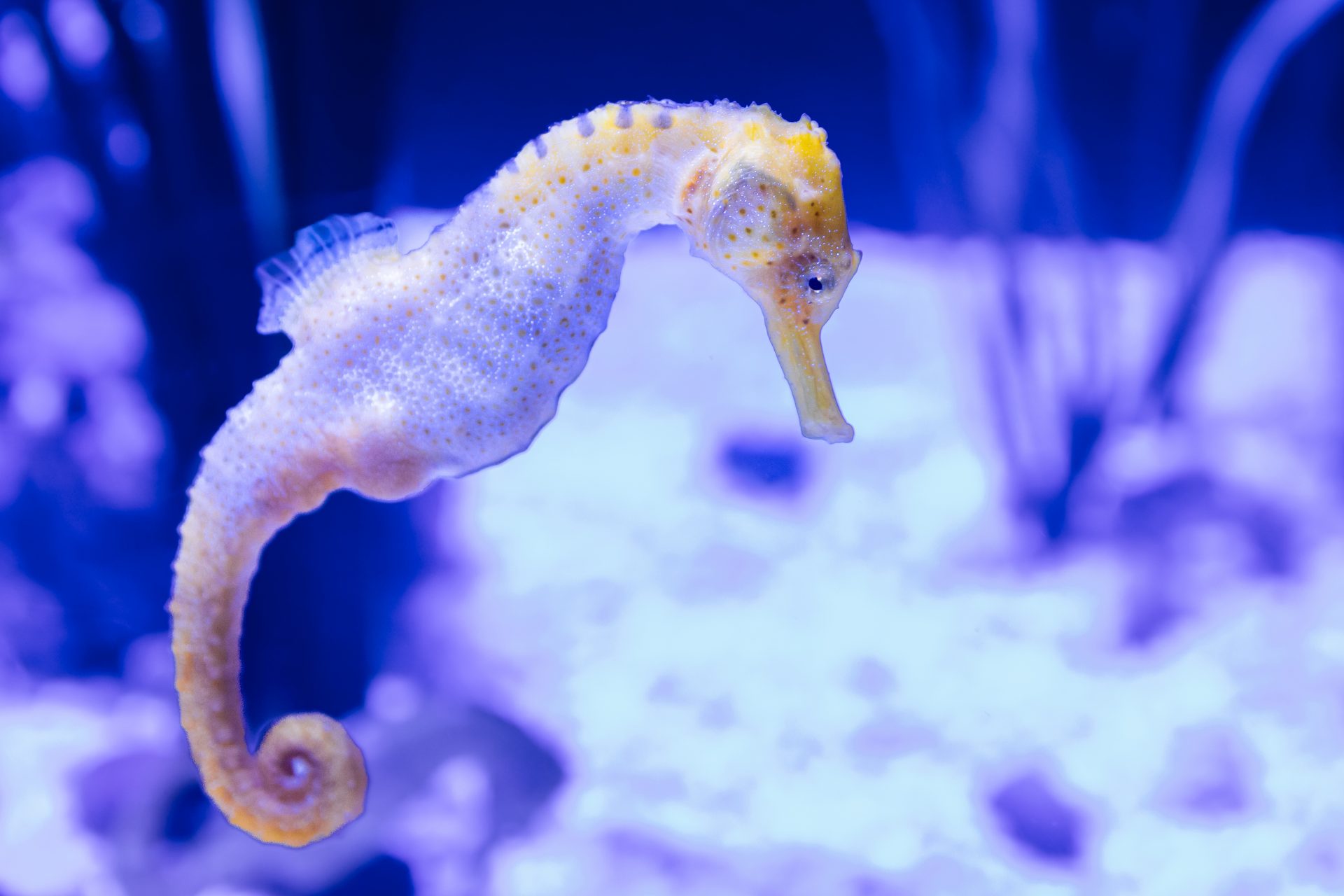Do you know these surprising facts about sea creatures?
...that oceans form the largest ecosystem on our beautiful planet? We still have much to learn about our oceans but scientists have unveiled some pretty cool facts. Click on to learn some surprising information!
Oceans are essential for regulating the climate, and they provide us with raw materials such as food and active ingredients used, particularly for medicines.
More than 90% of goods are transported by sea, and ocean waters absorb about one-third of man-made CO2.
The sea is irreplaceable, and its inhabitants are fascinating. Did you know that some fish meet to go hunting?
That all clownfish are born male? Or that the Covid vaccine owes a lot to a very particular inhabitant of the oceans?
This unusual species owes its name "horseshoe crab" to its appearance. The mouth of this sea creature is located in the middle of the body, and it has several eyes distributed all over the body.
Horseshoe crabs have been around since the time of the dinosaurs, but since 2016, they have been considered an endangered species. Why are they in danger? Because the pharmaceutical industry exploits their precious blue blood.
Their sky-blue blood contains amoebocytes, which react to toxic substances and can thus be used for the so-called horseshoe crab amoebocyte lysate test.
This test is necessary for the marketing authorization of medicines and vaccines. Hundreds of thousands of horseshoe crabs die each year for this reason.
Whales store CO2! It might seem hard to believe, but researcher Ralph Chami and a team of IMF economists found that a large whale captures 33 tonnes of CO2 during its lifetime, compared to just 22 kilos per year for a tree.
Deep-sea fish, such as tuna or shark, must swim constantly in order to be able to absorb sufficient oxygen in the gills. This is where the name Tuna comes from, as "Tuna" means "to rush".
Each of the eight limbs of the octopus can be moved independently of the others because they are all controlled by independent nervous systems: it is for this reason that it is said to have nine brains. Their two additional hearts allow them to have a greater blood flow in the gills.
The procreation of octopuses requires the death of the parents. The male dies immediately after mating and the female as soon as her offspring hatch.
This extraordinary marine species is able to modify its appearance, not only to camouflage itself, but also to communicate with its congeners.
Countless studies have shown the intelligence of these cephalopods. The announcement of the opening of the first octopus farm in the world, intended for human food, is therefore highly contested among scientists and biodiversity advocates.
Like many other sharks, the spiny dogfish is a viviparous species: the eggs hatch in the mother's womb. Gestation can last between 18 and 24 months in spiny dogfish, a record in the animal kingdom.
The spiny dogfish unfortunately is now endangered, mainly because we eat it too often as with eel or sea sturgeon.
Here's a curiosity in the animal kingdom: in seahorses, it is the males who bear the offspring.
The females deposit their eggs directly into the pouch of the males, where they are then fertilized. Then the pouch closes and the offspring are fed by the father.
Clownfish (which became famous all over the world thanks to the cartoon 'Finding Nemo') are all born male. But some then become females.
“Clownfish can switch from one gender to another like turning a switch on and off,” biologist Mario Ludwig told Deutschlandfunk-Nova radio. "So gender switching is not a problem for them."
Hybrid corals that belong to the category of cnidarians reproduce can sexually and provide both male and female part of reproduction. For this, they emit both eggs and sperm at the same time.
The answer is yes ! Research results from Alexander Vail and his team at the University of Cambridge show that such cooperation exists between perch and moray eels (pictured).
The perch watch the high seas, while their hunting companions take care of flushing out the prey that flees into the crevices.
According to the observations that have been made, the perches are always at the initiative of this unique cooperation among marine species, by signaling to the moray eels with a nod of the head.
"The albatrosses: guardians of the oceans." Such was the idea of a pilot project led by marine ecologist Henri Weimerskirch, of the CNRS.
To help catch illegal fishers 169 birds were equipped with a GPS. To fetch food, they can travel up to 15,000 kilometers and track trawlers 30 kilometers away.
The capacity of surveillance patrols against illegal fishing is strongly limited by the size of the oceans. It is easy for the fleets in question to turn off the automatic identification system that all boats are equipped with.
But their radars always remain on for security reasons, and this data is cross-referenced with the coordinates of the albatrosses when they stay longer at a specific point on the high seas.
In six months, the albatrosses flushed out 100 illegal fishing convoys. A successful experience that may help to reduce overfishing a little in the future.
More for you
Top Stories











































